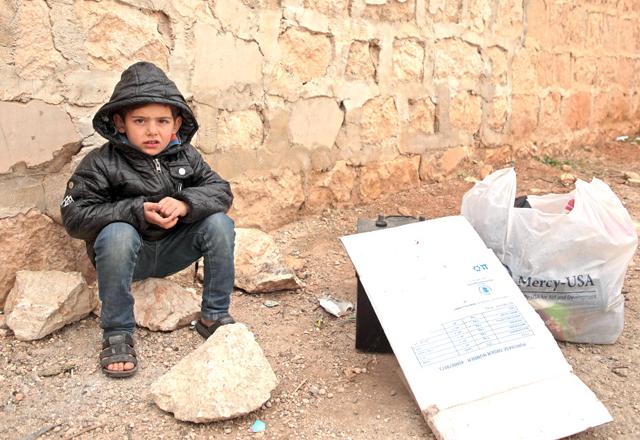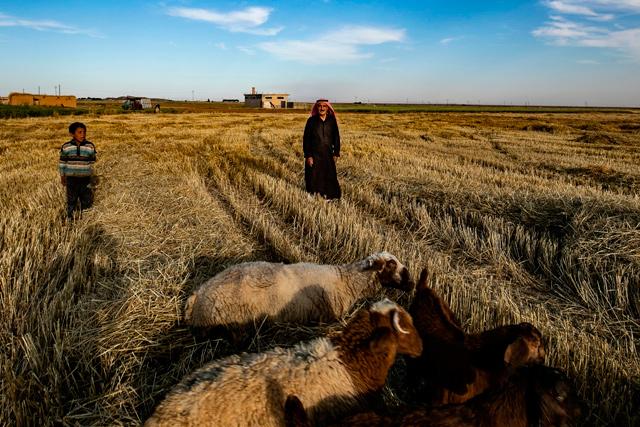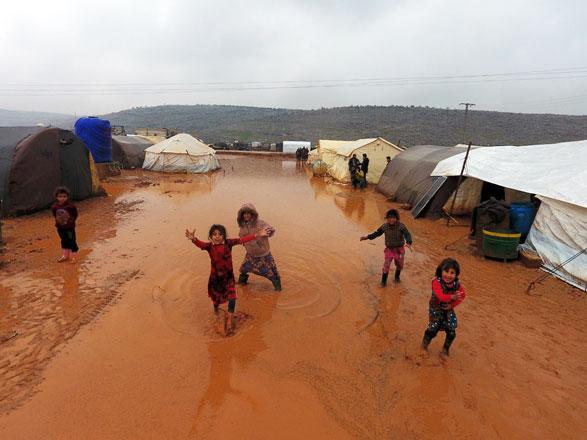You are here
Syria Kurds warn of regime pressure, aid shortages after UN vote
By AFP - Jan 14,2020 - Last updated at Jan 14,2020
BEIRUT — Kurdish authorities in northeast Syria warned on Tuesday that a UN vote to scrap a key entry point for cross-border aid will lead to medical shortages and expose them to regime control.
“There will be no [UN] aid entering the region except from government-held areas, which will give the regime a greater ability to control aid distribution,” said Abdel Kader Mouwahad, director of humanitarian affairs for Kurdish authorities.
The Yaroubiya crossing along the Iraqi border, was a key entry point for UN-funded medical aid reaching a Kurdish-held region where an estimated 1,650,000 people are reliant on humanitarian assistance, according to aid groups.
The UN had used it to deliver medical supplies that the Syrian government had not permitted via Damascus.
But it was scrapped last Friday after the UN Security Council voted to scale back cross-border aid deliveries to Syria, under pressure from regime ally Russia.
This leaves Syria’s Kurds with the unofficial Samalka crossing with Iraqi Kurdistan, which is not used for UN aid.
Yaroubiya’s closure will cripple at least half of the healthcare response in an area ravaged by battles against the Daesh group as well as a Turkish offensive in October that displaced 200,000 people.
It will disrupt “60 to 70 per cent of medical assistance to Al Hol”, an overcrowded desert camp brimming with tens of thousands of civilians and Daesh families, said Mouwahad.
It will also threaten the delivery of UN-funded medicine and medical equipment to a key hospital in the city of Hassakeh as well as critical medical points established around two towns near the Turkish border hard hit by Turkey’s latest incursion, he told AFP.
He said that UN support for the Kurdish Red Crescent may also be slashed.
‘Pressure card’
Aggravating the situation, UN-funded aid to northeast Syria must now come either from Turkey or from government-held areas with permission from Damascus, which aims to reintegrate Kurdish-held areas into the state’s fold.
But Mouwahad said it was “impossible” for aid to enter from Turkey, which views Kurdish forces in Syria as a “terrorist” offshoot of the Kurdistan Workers’ Party on its own soil.
Damascus, for its part, will use aid supply lines as a “pressure card” to encourage Kurds to relinquish the semi-autonomy they have achieved during Syria’s nine-year-old conflict.
“The aim is to politically intimidate the Kurdish administration,” he said.
Syrian troops have already deployed in much of the northeast in recent months as part of deal with the Kurds who are seeking protection from Turkey.
Damascus has also called on the Kurdish-led Syrian Democratic Forces (SDF) who have fought Daesh to integrate into its military, a proposal the Kurds rejected.
Redur Khalil, a senior SDF official, said the latest UN move was a “dangerous development”.
“Aid will be barred from reaching the region” under the restrictions on entry points, he said on Twitter, urging the United Nations to intervene.
International Crisis Group analyst Sam Heller said the curb on aid entry points “further concentrates power in Damascus, and in Syrian government hands”.
“It’s another instance of Damascus benefitting from its control of the Syrian state’s institutions and international legitimacy... to enforce dependence,” he said.
Related Articles
AL HOL CAMP, Syria — At least 517 people, mostly children, died in 2019 in an overstretched Syrian camp housing displaced people and relativ
AMUDA, Syria — Gazing over his wheat field in north-eastern Syria, farmer Adel Othman expects a bumper crop this year, but two riv
BRUSSELS — The European Union called on Syria's regime and its allies to halt "indiscriminate" military attacks on civilians in the cou


















